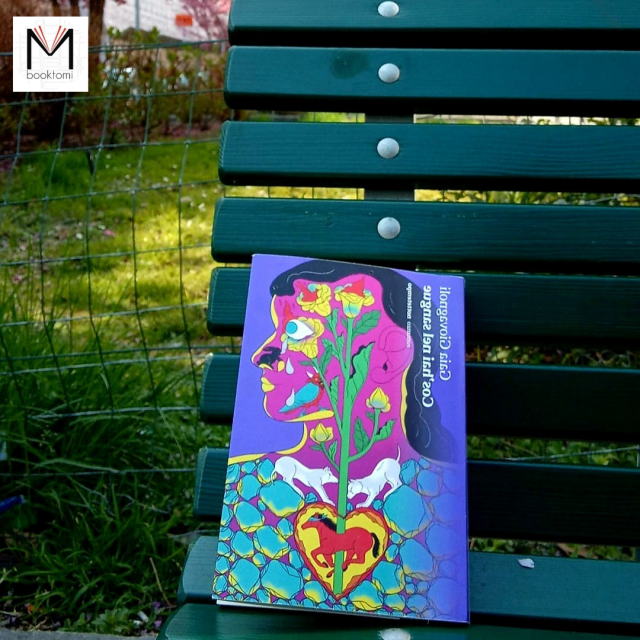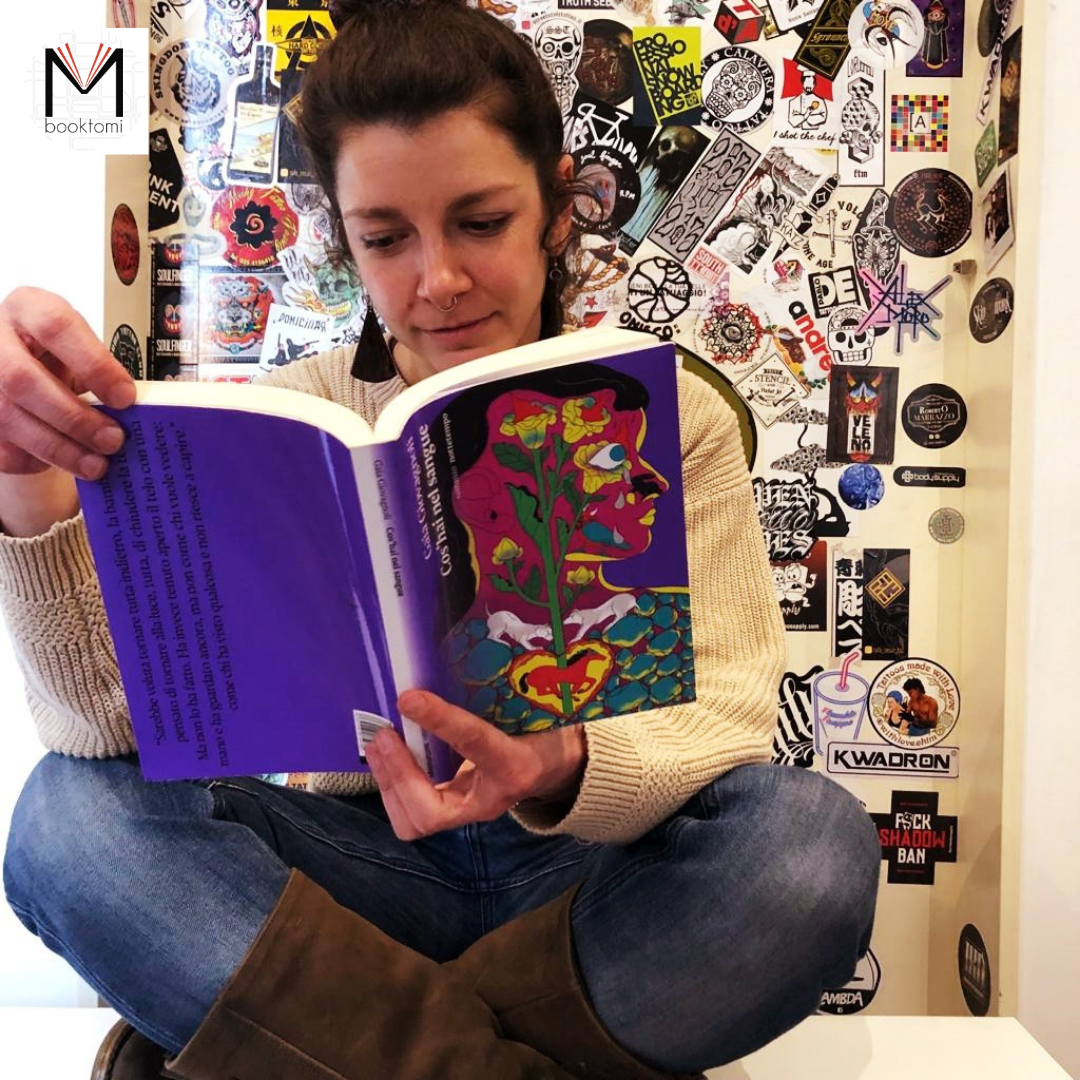“FRIDAY DI-VERSO”
“The true form of blood is a chain, and its weight is unsustainable”.
This is not a question: it is already a conclusion. And it’s in the title: it takes some character, to put a full stop and not a question mark. It gives us a bit of the weight of this young rookie, Gaia Giovagnoli, who with a hint of self-confidence writes this book to talk about roots, women, research, the unexpected.
How much and what part of us starts before us? The question is all the more physiological the more complex and tangled the relationship with those who generated us is. The psychological perspective that could easily dominate the pages of this novel, however, gives way to another language, almost esoteric, which transforms the autobiographical question into an alphabet of symbols and characters that is much more fascinating to cross.
Caterina is a young woman, anorexic, traumatized, ran away from home and returned home to take care of her mother, who, in the darkness of an undefined pathological mental disturbance, alternates aggression and dependence, anger and fear, in an inevitably devastating emotional back and forth. , for itself and for those around it. In the short dialogues between mother and daughter she slowly intrudes (thanks to the unfortunate anthropologist Spina) a place from the past, Coragrotta, which already seems to contain in the name the oxymoron of the blood bond, refuge and oppression. If going back can explain some pieces of a painful present, it is easy that not even all the things that we can discover in that “backward” are so helpless.
It therefore oscillates between the mother’s past and the daughter’s present, with a narrative that is mysterious and witchy and that in effect keeps us on the page, on all pages – in fact it has the advantage of not not being unnecessarily verbose: and if it is true that a description should never be casual, the author knows very well how to paint Coragrotta and the stories related to it. It is a country that intertwines its existence with woods and mountains and roads, a country that we imagine covered by a gray sky and surrounded by black shadows. There where hairless women rule over the svardùni, the “emptied”, where the naked wolves feed on plants of flesh, we remain with bated breath, as prey to a foreboding, in fearful waiting for a finale that realizes so much of the mind in pieces of the mother as much as of the supernatural that, together with the protagonist, we are unable to explain.
“Cariclò’s gray dress becomes a sound of pouring rain; the lace edge is deformed, taking on the transparency of the puddles. In a few seconds, every part of her crashes on the grass. Her thoughts fall on the rooftops now, one drop at a time. They run down my forehead, making me tremble. “
Images like this, which never become “something that can really be said”, justify the sense of slight anguish, of unresolved, that you feel when reading this book. So what do you have in your blood?
In your blood you have the sap of the trees in which your mother grew up. In her blood you have her fear of her for the body, for all bodies. In your blood you have what she saw and what she didn’t want to see. But in her blood you also have her boundless and unrealizable desire not to hurt you and protect you.
In your blood you have your grandmother’s witchcraft, her foresight, the hair left on that mountain, in that land and not another.
But in the blood, in your blood, there is also the courage to be something different, there is the end of justifications, of eternally blaming fathers and mothers for their failures. Each family history is different, has its own extremely specific weight. But Giovagnoli tries, in his mysterious and fascinating alphabet, to remind us how roots serve the plant so as not to fall but also and above all so that his branches reach out towards another sky, all to be discovered.
____________________________________________________________________________________________________
Gaia Giovagnoli, What is in your blood, Nottetempo, Milano, 2022




